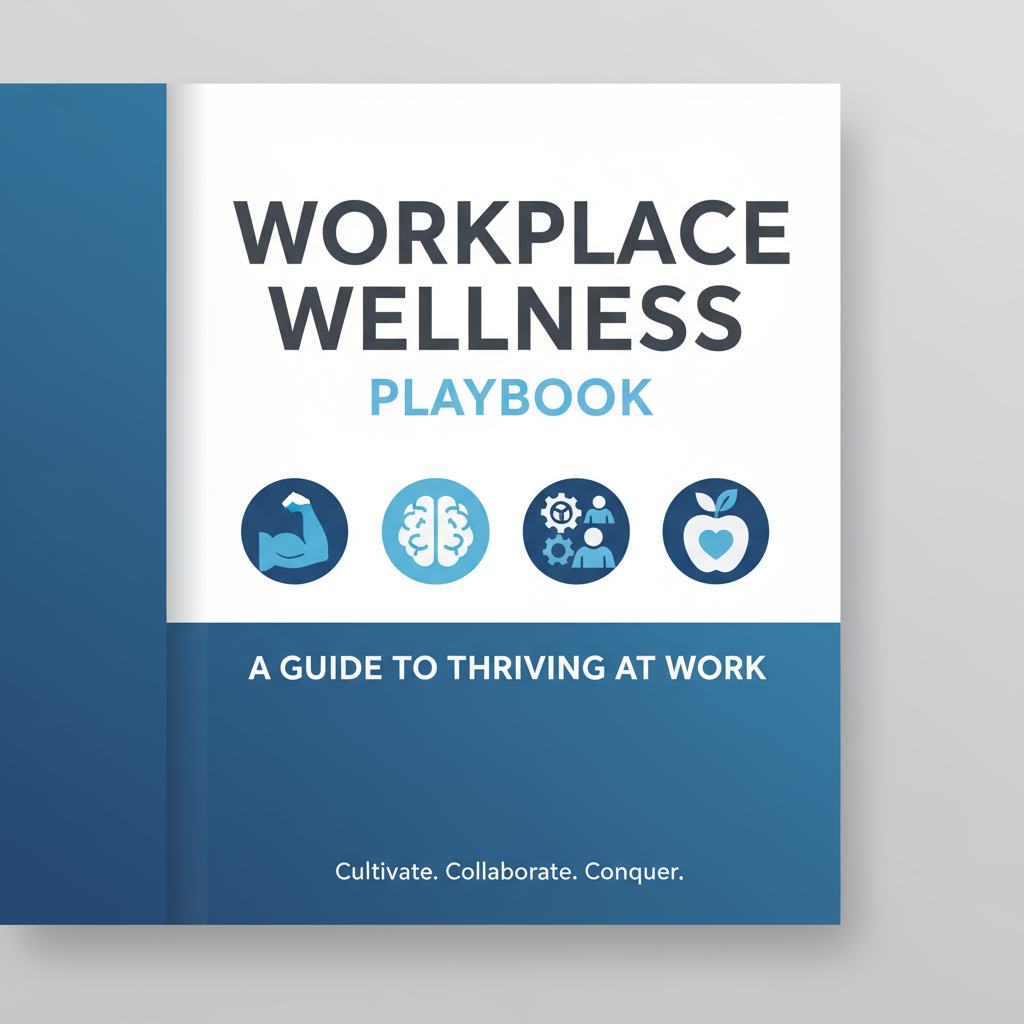Workplace Wellness Playbook Your guide to designing and delivering impactful wellness programs for modern organizations.
1. Introduction
Employee wellness is no longer a perk—it’s a business strategy. This playbook is designed for HR leaders, wellness champions, and organizational decision-makers to build a culture of health, engagement, and productivity through structured wellness initiatives.
2. Set Clear Objectives
Before launching any program, define your goals. Common objectives include:
- Reducing stress and burnout
- Improving physical health and movement
- Enhancing emotional resilience
- Boosting employee engagement and retention
Tip: Conduct a short anonymous wellness needs survey to understand employee priorities.
3. Identify Your Wellness Pillars
Focus on holistic well-being. Wellness Cubicle recommends these 8 pillars:
- Physical Fitness
- Emotional Wellness
- Financial Wellbeing
- Nutrition & Lifestyle
- Preventive Health
- Spiritual Meditation
- Ayurveda Essentials
- Social Wellness & Engagement
Choose 3–5 pillars that align best with your workforce needs.
4. Plan Your Programs
Map out a quarterly or monthly wellness calendar. Include a mix of formats:
- Live sessions (e.g., yoga, meditation, financial planning)
- On-demand resources (videos, guides)
- Interactive tools (surveys, trackers)
Sample Month:
- Week 1: Guided Meditation
- Week 2: Fitness Pop-Up
- Week 3: Nutrition Webinar
- Week 4: Mood Check-in Survey
5. Promote Participation
Communicate clearly and often:
- Send email invites and calendar blocks
- Use posters or Slack banners
- Appoint wellness ambassadors from different teams Incentivize with certificates, wellness rewards, or shout-outs.
6. Measure What Matters
Track engagement and outcomes with tools like:
- Attendance reports
- Feedback surveys
- Mood tracker trends
- ROI dashboards (if available)
Benchmark: Look for 70%+ participation and track improvements in mood or stress levels.
7. Optimize & Evolve
Every 3 months:
- Review feedback and participation data
- Introduce new formats or topics
- Involve employees in planning
Keep your wellness experience fresh, relevant, and inclusive.
8. Partner with Experts
Collaborate with wellness providers (like Wellness Cubicle) to:
- Access curated programs
- Reduce HR workload
- Ensure consistent quality and impact
9. Sample Launch Plan (1 Week)
- Day 1: Launch email + calendar invites
- Day 2: Employee wellness survey
- Day 3: First session (e.g., ZenStretch or CalmSpace)
- Day 4: Slack/WhatsApp reminders
- Day 5: Feedback collection & next steps
10. Conclusion
Wellness is a journey, not a one-off event. With the right structure, commitment, and support, any organization can build a thriving culture of well-being.
Wellness Cubicle is here to help you make wellness work.

